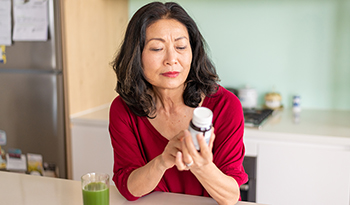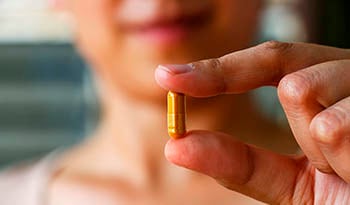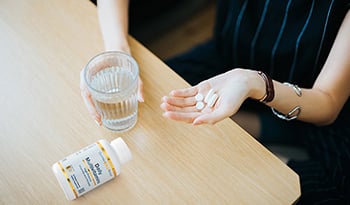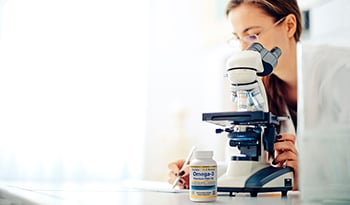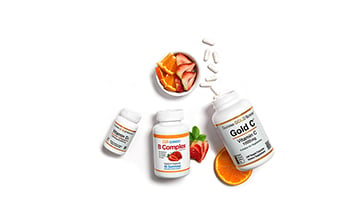What Is a Clean Supplement and How Do You Choose One?
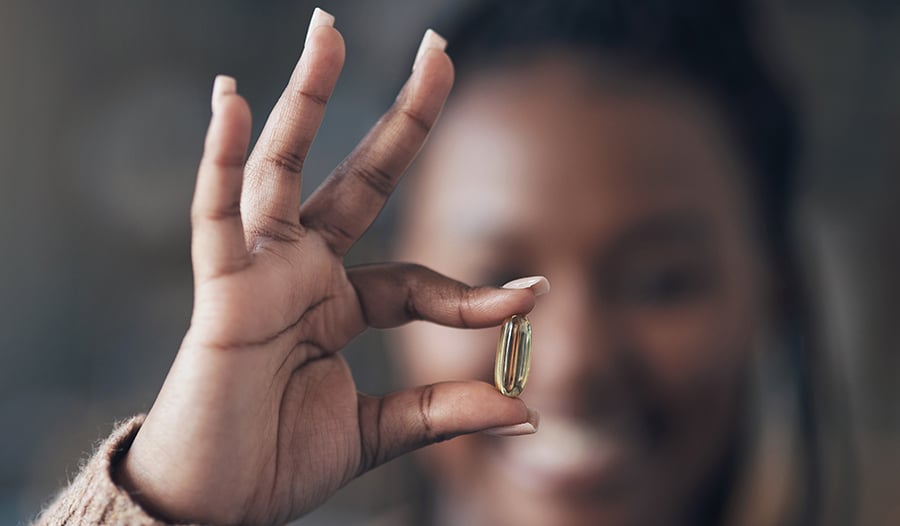
Supplements are becoming more popular. Consumers want safe, high-quality, and effective supplements without any unnecessary fillers or unidentifiable ingredients.
Enter clean supplements. What are clean supplements? Are clean supplements safe, healthy, or more beneficial than conventionally produced supplements? Why are clean supplements becoming so popular?
Clean supplements may be increasing in popularity because they may offer several health benefits.
What Are Clean Supplements?
Clean supplements have easy-to-understand wording on their labels, simple ingredients, and a minimal amount of processing.
Many companies that offer clean supplements also limit preservatives, artificial food dyes, and ingredients associated with allergies like gluten.
The main focus of a clean supplement manufacturer is purity and simplicity without anything harmful, extra, or unnecessary. This means that some companies may go as far as having their supplements certified as clean by non-profit agencies like the Clean Label Project.
The Clean Label Project is a non-profit organization that offers independent lab testing for supplements to ensure that they are free from harmful contaminants.
Supplements with designations as clean through independent organizations ensure consumers that they are receiving a product free from harmful preservatives, heavy metals, and unsafe chemicals.
Clean vitamins and supplements have been gaining in popularity because they may offer the promise of a safe supplement without any harmful or unnecessary extras. They are also trendy because they may provide unique health benefits like lower preservative and artificial food dye exposure, less risk of pesticide ingestion, and a reduction in heavy metal exposure.
Benefits of Clean Supplements
1. Clean Supplements May Have Fewer Preservatives
There may be benefits to choosing clean supplements over conventionally processed ones. For example, clean supplements may have fewer preservatives and artificial food dyes. While many preservatives extend the shelf life of supplements, some individuals may react negatively to them.
For example, one in vitro study found that preservatives decreased the Th1 immune response. The Th1 immune response helps to fight against viral infections and the development of cancerous cells. The Th1 immune response also helps to balance out the Th2 immune response.
The Th2 immune response helps to fight against toxins, bacteria, parasites, and allergy-producing compounds.
An overactive and unbalanced Th1/Th2 immune response has been linked to diseases like allergies and asthma.
Research also suggests that preservatives like sodium benzoate may contribute to disorders like asthma, attention-deficit/hyperactivity disorder (ADHD), heart conditions, and even obesity.
Studies also suggest that artificial food dyes may be linked to the increase in hyperactivity in children. One meta-analysis of 15 studies found that artificial food dyes increased hyperactive behavior in children who already had a hyperactive disorder.
A meta-analysis is a study that combines data from multiple studies on the same subject to find a common result.
Another study found that artificial food dyes exacerbated the symptoms of hyperactivity in children with ADHD and contributed to hyperactive behavior in kids without a hyperactive disorder.
Many clean supplements deliberately choose to avoid using these types of preservatives and artificial food colorings in their manufacturing process. This means that choosing clean supplements may help to lessen the burden of preservative intake.
That’s not to say that clean supplements don’t have preservatives at all. If preservatives and necessary, clean supplement manufacturers seek to use natural preservatives when possible.
Studies suggest that natural preservatives, like horse chestnut flowers and citric acid, may prevent microbial growth while maintaining a supplement’s nutritional value.
2. Clean Supplements May Reduce Pesticide Exposure
Another health benefit of clean supplements is that they may reduce pesticide exposure. Many companies focused on offering clean supplements source their materials from organic farmers who use little to no pesticides.
Widespread pesticide use in crops has been linked to a variety of diseases and disorders like high blood pressure, autism, diabetes, and cancer. Long-term pesticide exposure is particularly harmful to children since it has been linked to developmental disorders, attention-deficit/hyperactivity disorder, brain tumors, and acute lymphocytic leukemia (ALL).
Since clean supplement manufacturers often strive to use organic source materials, this may lead to less pesticide exposure for the consumer.
Parents may even choose clean supplements for their children specifically because they are organic to help reduce the risks of chronic pesticide exposure.
Because many clean supplements use organic ingredients, there is the added benefit of better absorption of the supplement’s nutrients. Studies suggest that natural nutrients are better absorbed and more bioavailable than synthetic ones.
For example, one double-blind randomized study separated participants into two groups. One group was given a natural B vitamin complex derived from quinoa seedlings while the other was given a synthetic B complex.
Both groups experienced a rise in their serum levels of B vitamins but the natural group had a steady rise in B vitamin serum levels throughout the study. Compared to the natural group, the synthetic group only saw a steady increase in vitamin B2 and B12 levels.
Research also indicates that natural, clean vitamins may have different chemical compositions to synthetic ones, which may affect how much can be absorbed and readily used by the body.
Clean supplements may help to reduce the guesswork about nutrient absorption by offering products that are as close to the form that nature intended as possible.
3. Clean Supplements May Have Lower Heavy Metals
Clean supplements offer yet another health benefit in that may also have significantly lower levels of heavy metals compared to conventionally produced supplements. Heavy metals are elements found throughout nature that are extremely dense. While some heavy metals are safe and even necessary for human health like iron, many of them are toxic to human health.
Studies show that exposure to heavy metals, even in low doses, can cause a whole host of health problems. For example, low dose arsenic exposure has been linked to an increased risk of developing bladder, lung, and skin cancers.
Low-dose mercury exposure has been associated with motor function difficulties, disrupted attention, and memory deficits in both children and adults.
Low-dose lead has been linked to a wide range of health concerns in humans from anemia and high blood pressure to kidney and neurological disorders. Toxic heavy metal exposure leads to reduced longevity and a lower quality of life.
Toxic heavy metals like arsenic, lead, and mercury are sometimes found in supplements.
Most supplement manufacturers strive to provide high-quality products to their consumers but this process may be compromised as the case has been previously for supplements like spirulina.
Spirulina is a blue-green algae high in nutrients like B vitamins and iron that may have powerful anti-aging effects. Found in both fresh and salt water, studies suggest that spirulina may have several health benefits like supporting healthy weight loss and improving blood lipid levels.
Unfortunately, spirulina has also been the subject of controversy caused by studies suggesting that certain brands of the blue-green algae contained heavy metals. Studies found that spirulina contaminated by heavy metals contained trace amounts of lead, mercury, and arsenic. The heavy metals found in spirulina are often caused by contaminants that come from pesticide and fertilizer use.
Clean supplement manufacturers seek to eliminate such heavy metal contaminants by offering organic unprocessed or minimally processed products like spirulina.
3 Ways to Choose Clean, Quality Supplements
1. Opt for Organic
When choosing a supplement, look for labels that indicate that the product is organic. Organic or certified organic supplements are more likely to be produced in a clean fashion with less risk of contamination with pesticide residues or heavy metals.
2. Read the Ingredients
Read the supplement label ingredients. Supplement labels are usually divided into two sections: one for the main ingredients and one for the “other ingredients.” The main ingredients section usually lists the ingredient or ingredients that are the most abundant or the most active in the supplement along with nutrition facts about the ingredient or ingredients.
The “other ingredients” section is usually smaller than the main ingredient section, and it is listed underneath the nutrition facts. This section usually lists everything else that makes up the supplement.
Clean products usually have minimally processed easy-to-understand ingredients. They also tend to have fewer preservatives. If there are little to no preservatives and additives listed in the “other ingredients” section, then the supplement may be processed in a clean fashion.
3. Choose Trusted Brands
Look for trusted brands from dedicated supplement retailers. Many brands that have been in the supplement business for a long time know how to produce high-quality clean supplements for their customers. Buying supplements from a dedicated supplement retailer who works closely with these brands can help improve the chances of choosing a clean supplement.
Takeaway
Clean supplements are becoming more popular than ever. Choosing clean supplements may help to reduce the harmful health effects associated with long-term exposure to common preservatives and dyes, pesticides, and even heavy metals. When it comes to supplement manufacturing, clean supplements may be leading the way to a safer and healthier future.
References:
- Al-Dhabi NA. Heavy metal analysis in commercial Spirulina products for human consumption. Saudi J Biol Sci. 2013;20(4):383-388. doi:10.1016/j.sjbs.2013.04.006
- Arnold LE, Lofthouse N, Hurt E. Artificial food colors and attention-deficit/hyperactivity symptoms: conclusions to dye for. Neurotherapeutics. 2012;9(3):599-609. doi:10.1007/s13311-012-0133-x
- Artificial food colouring and hyperactivity symptoms in children. Prescrire Int. 2009;18(103):215.
- Barnes PJ. Th2 cytokines and asthma: an introduction. Respir Res. 2001;2(2):64-65. doi:10.1186/rr39
- DiNicolantonio JJ, Bhat AG, OKeefe J. Effects of spirulina on weight loss and blood lipids: a review. Open Heart. 2020;7(1):e001003. Published 2020 Mar 8. doi:10.1136/openhrt-2018-001003
- Fernandes FA, Carocho M, Heleno SA, et al. Effect of Natural Preservatives on the Nutritional Profile, Chemical Composition, Bioactivity and Stability of a Nutraceutical Preparation of Aloe arborescens. Antioxidants (Basel). 2020;9(4):281. Published 2020 Mar 26. doi:10.3390/antiox9040281
- Grosshagauer S, Kraemer K, Somoza V. The True Value of Spirulina. J Agric Food Chem. 2020;68(14):4109-4115. doi:10.1021/acs.jafc.9b08251
- Kidd P. Th1/Th2 balance: the hypothesis, its limitations, and implications for health and disease. Altern Med Rev. 2003;8(3):223-246.
- Lamm SH, Boroje IJ, Ferdosi H, Ahn J. A review of low-dose arsenic risks and human cancers. Toxicology. 2021;456:152768. doi:10.1016/j.tox.2021.152768
- Landrigan PJ. Toxicity of lead at low dose. Br J Ind Med. 1989;46(9):593-596. doi:10.1136/oem.46.9.59
- Lindschinger M, Tatzber F, Schimetta W, et al. Bioverfügbarkeit eines natürlichen versus eines synthetischen Vitamin-B- Komplexes und deren Auswirkungen auf metabolische Prozesse [Bioavailability of natural versus synthetic B vitamins and their effects on metabolic processes]. MMW Fortschr Med. 2020;162(Suppl 4):17-27. doi:10.1007/s15006-020-0230-
- Nicolopoulou-Stamati P, Maipas S, Kotampasi C, Stamatis P, Hens L. Chemical Pesticides and Human Health: The Urgent Need for a New Concept in Agriculture. Front Public Health. 2016;4:148. Published 2016 Jul 18. doi:10.3389/fpubh.2016.00148
- Roberts JR, Karr CJ; Council On Environmental Health. Pesticide exposure in children [published correction appears in Pediatrics. 2013 May;131(5):1013-4]. Pediatrics. 2012;130(6):e1765-e1788. doi:10.1542/peds.2012-2758
- Sambu S, Hemaram U, Murugan R, Alsofi AA. Toxicological and Teratogenic Effect of Various Food Additives: An Updated Review. Biomed Res Int. 2022;2022:6829409. Published 2022 Jun 24. doi:10.1155/2022/6829409
- Tchounwou PB, Yedjou CG, Patlolla AK, Sutton DJ. Heavy metal toxicity and the environment. Exp Suppl. 2012;101:133-164. doi:10.1007/978-3-7643-8340-4_6
- Thiel RJ. Natural vitamins may be superior to synthetic ones. Med Hypotheses. 2000;55(6):461-469. doi:10.1054/mehy.2000.1090
- Zahir F, Rizwi SJ, Haq SK, Khan RH. Low dose mercury toxicity and human health. Environ Toxicol Pharmacol. 2005;20(2):351-360. doi:10.1016/j.etap.2005.03.007
- Zaknun D, Schroecksnadel S, Kurz K, Fuchs D. Potential role of antioxidant food supplements, preservatives and colorants in the pathogenesis of allergy and asthma. Int Arch Allergy Immunol. 2012;157(2):113-124. doi:10.1159/000329137
DISCLAIMER:This Wellness Hub does not intend to provide diagnosis...
















































































 Table of Contents
Table of Contents





